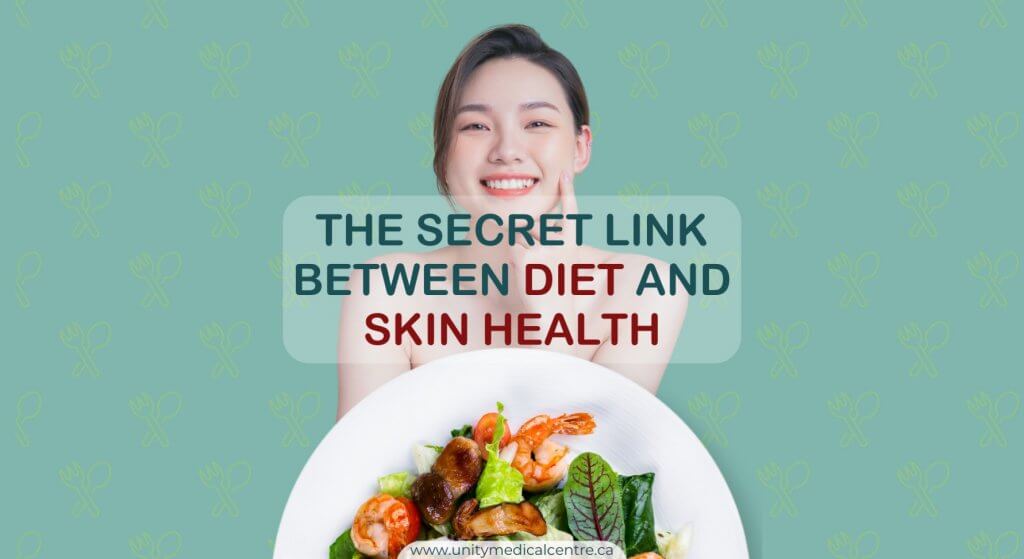
The Secret Link Between Diet and Skin Health
The quest for flawless skin often leads us to countless skincare products promising miracles. However, true skin health starts from the foods we consume daily. In this comprehensive exploration, we delve into the intricate relationship between diet and skin health, uncovering the science behind achieving a radiant complexion.
Understanding the Basics:
Your skin is a dynamic organ, constantly renewing itself and acting as a barrier against environmental aggressors. While genetics and skincare routines play a role, the nutrients you provide your body through diet are equally critical for maintaining optimal skin function.
The Role of Nutrition:
Nutrition plays a pivotal role in skin health, providing essential vitamins, minerals, and antioxidants necessary for maintaining skin structure, moisture, and elasticity. For example, vitamin C supports collagen synthesis, while vitamin E protects against UV-induced damage, both crucial for youthful skin.
Scientific Insights:
Research suggests that specific dietary components can influence various skin conditions. High-glycemic foods, such as sugary snacks and refined carbohydrates, have been linked to increased acne severity due to their potential to spike insulin levels and promote inflammation.
Hydration and Skin Vitality:
Hydration is fundamental for skin health, as it helps maintain skin moisture and plumpness. Incorporating water-rich foods like cucumbers, tomatoes, and oranges into your diet can complement your fluid intake and contribute to overall skin hydration.
Gut Health and Skin Conditions:
Emerging evidence highlights the gut-skin axis, demonstrating the interconnectedness between gut health and skin conditions like acne and eczema. Probiotic-rich foods such as yogurt and fermented vegetables can help balance gut flora and reduce inflammation, potentially improving skin health.
Inflammation and Skin Aging:
Chronic inflammation is a common denominator in many skin issues and contributes to premature aging. Consuming anti-inflammatory foods like fatty fish, nuts, and leafy greens can help combat inflammation and protect against age-related skin changes.
Balanced Diet for Optimal Skin Health:
Achieving healthy, radiant skin requires a balanced diet rich in whole foods, including fruits, vegetables, lean proteins, and healthy fats. Avoiding excessive intake of processed foods, sugary treats, and alcohol can help maintain skin integrity and reduce the risk of skin issues.
Conclusion:
The link between diet and skin health is undeniable, with nutrition playing a crucial role in maintaining skin integrity and vitality. By adopting a balanced diet comprising nutrient-rich foods and staying hydrated, you can support your skin’s natural functions and achieve a glowing complexion from within.
References
- Schagen SK, et al. Discovering the link between nutrition and skin aging. Dermato-Endocrinology.
- Danby FW. Acne and dairy products: a review of the literature. The Journal of the American Academy of Dermatology.
- Kim J, et al. Dietary effect of lactoferrin-enriched fermented milk on skin surface lipid and clinical improvement of acne vulgaris.
